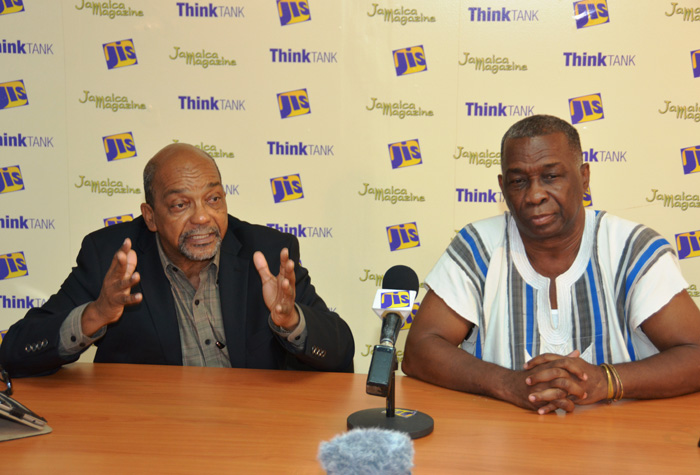Christmas Rebellion To Be Celebrated December 27
By: , December 21, 2015The Key Point:
The Facts
- Sam Sharpe, a slave and a deacon in the Baptist church, was the protagonist of the 1831 Slave Rebellion which began on the Kensington Estate and which was largely instrumental in bringing about the abolition of slavery in Jamaica and the Caribbean.
- He pointed out that the annual celebration, dubbed the ‘Flames of Freedom’, serves to bring light to the significance of the rebellion and the role Sam Sharpe played in the subsequent abolition of slavery.
The Full Story
The 184th anniversary of the ‘Christmas Rebellion’, which was led by National Hero, the Rt. Excellent Samuel Sharpe, will be celebrated and re-enacted on December 27, in Tulloch Castle, Kensington, St. James.
Sam Sharpe, a slave and a deacon in the Baptist church, was the protagonist of the 1831 Slave Rebellion which began on the Kensington Estate and which was largely instrumental in bringing about the abolition of slavery in Jamaica and the Caribbean.
“The day itself will start with a torch run from Catadupa, the birthplace of Sam Sharpe,” explained Calvin Brown, a spokesperson for the South St. James Social and Economic Trust, organizer of the event.
“It will proceed on to Sam Sharpe Square, Montego Bay, and then to the Kensington historical site,” Mr. Brown said, at a JIS ‘Think Tank’, held at the agency’s regional office on December 18.
He pointed out that the annual celebration, dubbed the ‘Flames of Freedom’, serves to bring light to the significance of the rebellion and the role Sam Sharpe played in the subsequent abolition of slavery.
“That war in itself was a prelude to the ending of slavery as we know it. It is widely acknowledged that the burning of a trash house at Tulloch Castle Estate and the subsequent burning of Kensington Great House signaled the start of the rebellion,” Mr. Brown noted.
“When the rebellion was quelled several weeks later, some 40 plantations were burnt and 14 whites died. The retribution, however, was devastating as more than 500 slaves were summarily killed, primarily as a result of the inquisition which followed,” he added.
The rebellion in 1831 involved some 50,000 slaves throughout Jamaica and was brutally suppressed by the British military. Approximately 500 slaves were executed, including Sam Sharpe. The rebellion is credited for influencing the push for full emancipation of slaves, which came on August 1, 1838.
“A proud and defiant Sam Sharpe was publicly hung in the Square in Montego Bay on May 23, 1832. He accepted that death on the scaffold was freedom from the unbearable and repugnant miseries of slavery and that death was the only essence by which freedom was attainable,” Mr. Brown said.
“It is a known fact that the Christmas Rebellion was the proverbial straw that broke the camel’s back, as two years later in 1834, the British Parliament passed the abolition bill and four years later slavery was abolished,” he added.


